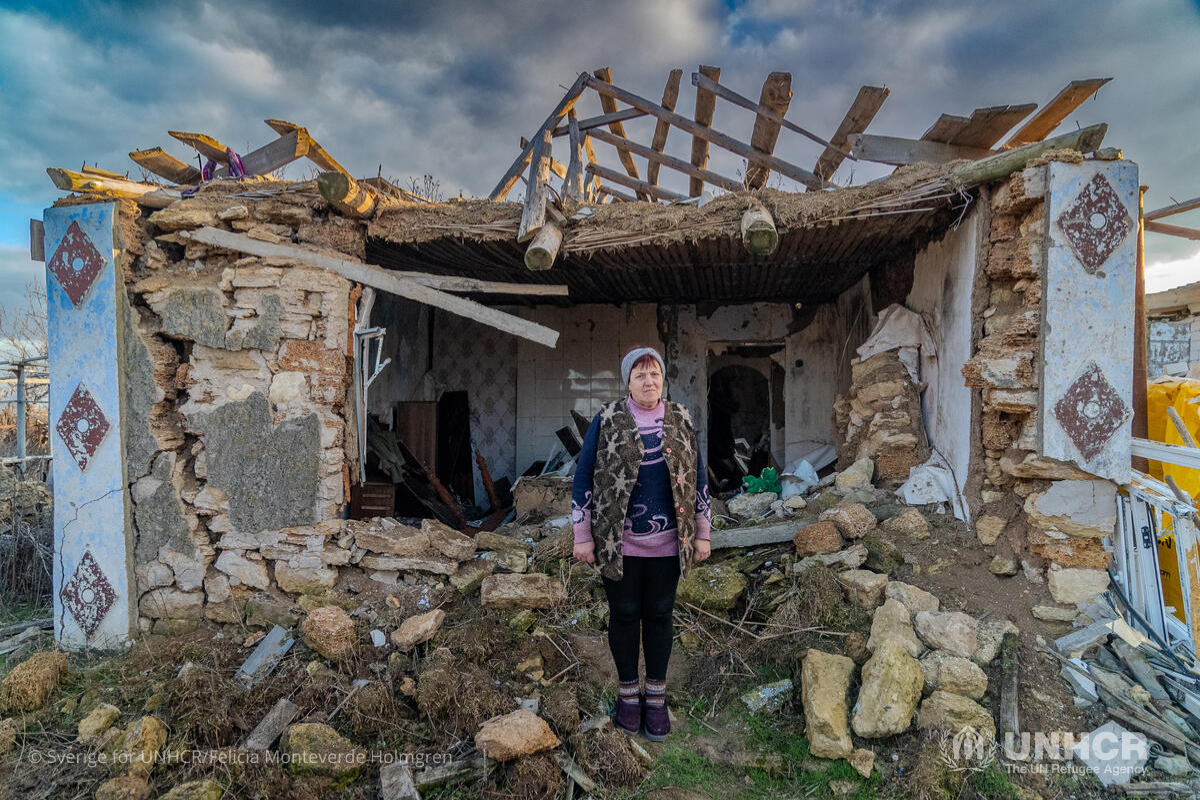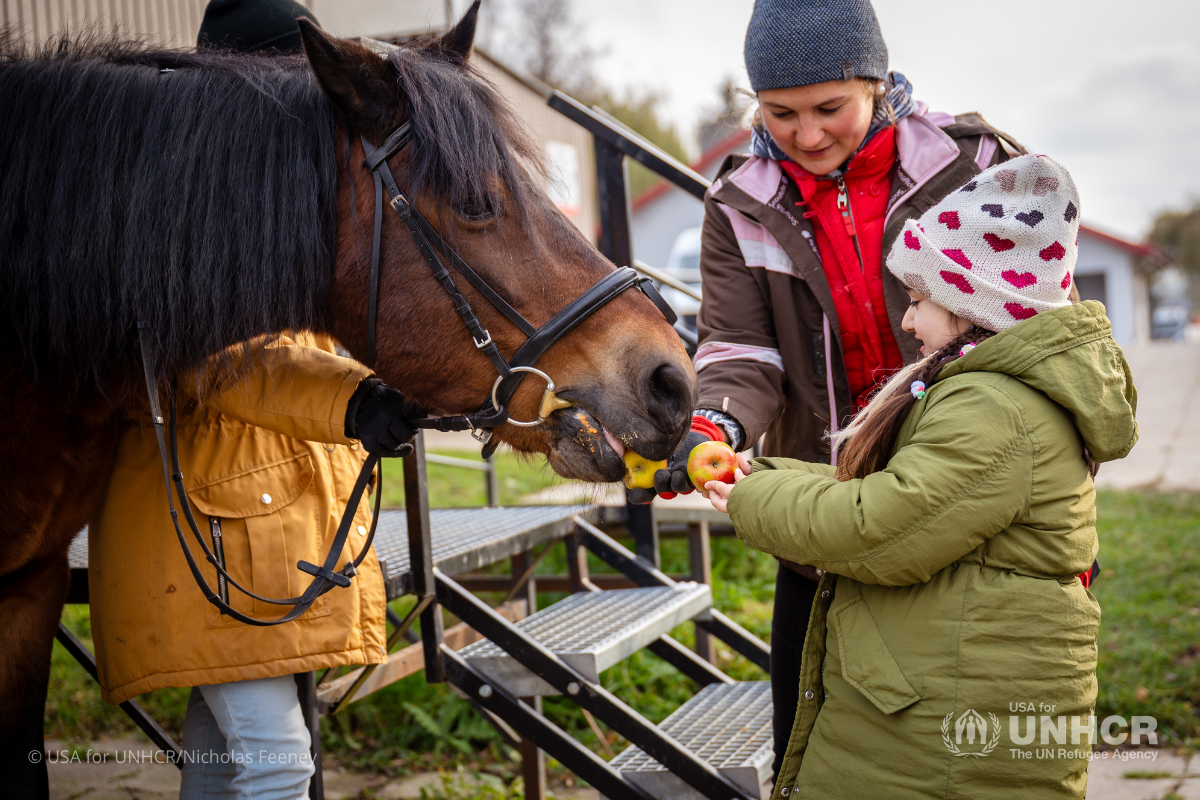Meet four resilient young refugees who are harnessing their skills to shape brighter futures
Growing up can be difficult for many adolescents and young adults around the world. But for refugees, this period of their lives is even more challenging as they encounter new obstacles and navigate new environments after being forced to flee their homes.
Refugee youth are often thrown into a world in limbo and find themselves at heightened risk of sexual and gender-based violence, forced recruitment, exploitation, detention, interruption and loss of access to education. They can become targets of xenophobia, harassment and discrimination. Alongside fleeing their homes, many young refugees also lose access to skills, confidence, social circles, aspirations and goals. Yet, amidst all of it, their perseverance and resolve carry them through.
In 2014, the United Nations General Assembly declared July 15th World Youth Skills Day to celebrate the significance of providing young people with skills for employment, decent work and entrepreneurship. This year's theme, "Youth Skills for Peace and Development," underscores young people's crucial role in peacebuilding and conflict resolution.
This World Youth Skills Day, meet four resilient refugee youth harnessing their talents and skills to shape brighter futures for themselves and those around them.
Amelia
 Despite facing stigma and challenges in her El Salvador community, 24-year-old Amelia never gave up on her passion for civil engineering. After participating in UNHCR's "My First Job" program, she secured an internship, eventually leading to full-time employment at a company in El Salvador.
Despite facing stigma and challenges in her El Salvador community, 24-year-old Amelia never gave up on her passion for civil engineering. After participating in UNHCR's "My First Job" program, she secured an internship, eventually leading to full-time employment at a company in El Salvador.
"I started as an intern in "My First Job", UNHCR's program with the Ministry of Labour. In this company I feel very valued,” says Amelia. “This was my first job and I am still here now and have grown professionally.”
Today, Amelia thrives as a real estate project engineer, breaking barriers and inspiring others with her leadership. Her current job not only gives her earning opportunities but also motivates her to move forward and keep dreaming.
The "My First Job" program is a collaborative effort among El Salvador's Ministry of Labour, UNHCR, World Vision and over 130 private companies. The program helps participants find employment and explore other options — like starting businesses or furthering their education — providing them with a pathway to a brighter future.
"I think that from now on I can continue, keep working, keep fighting, be a source of inspiration for other women, for other young people, and that it is possible if dreams can be achieved if they can be fulfilled," explains Amelia.
Ibrahime
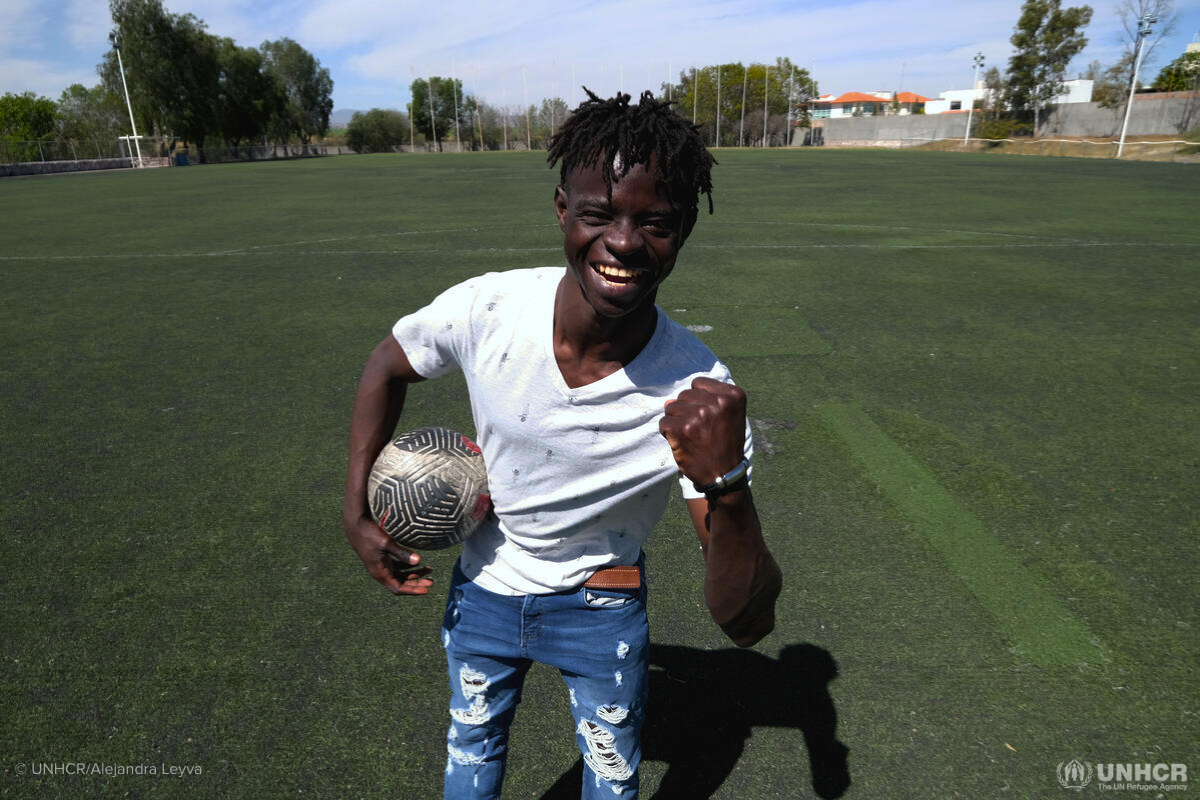
Ibrahime Sylla has two dreams: to represent Mexico as a professional soccer player and to be an engineer who invents communication devices that bring people closer together.
Ibrahime was alone and only 17 years old when he arrived in Tijuana, Mexico from Guinea two years ago. The YMCA shelter for unaccompanied migrant minors took him in and he quickly became beloved by staff and other residents. But, because he lacked the proper documents, he could not sign up for soccer training. That all changed when Ibrahime turned 18, he left the shelter and was taken in by a family in Tijuana.
Now, at 19 years old, Ibrahime says he wants to study while still playing soccer. "From a very young age, I started to like soccer and dreamed of becoming a professional player. I feel happy doing it; I had a ball and practiced at home,” he says. “In my country, I didn't go out much because it was dangerous to be on the streets, so I trained alone at home."
Today, Ibrahime is one step closer to achieving his dream. After training with Club Xolos in Tijuana, Club Necaxa in Aguascalientes invited him for a tryout, bringing him one step closer to playing professionally in the Mexican soccer league.
Evereste Mugisha
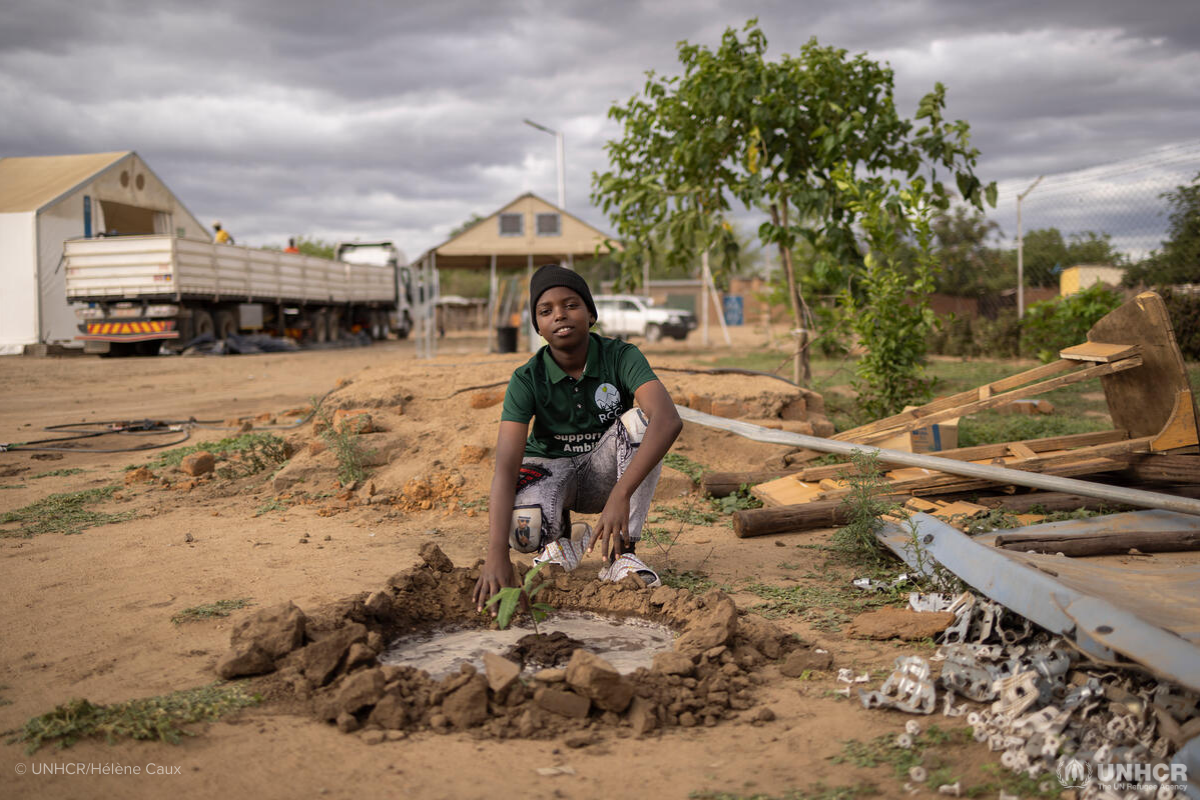
At just 14 years old, Evereste Mugisha is already a dedicated member of the Refugee Coalition for Climate Action (RCAA) in Tongogara, Zimbabwe. RCCA members conduct three main activities in the camp: clean-up campaigns, tree planting, and raising awareness of climate change among the refugee populations.
Evereste enthusiasm for planting trees has not only benefited the camp environment but also inspired hope and community spirit among fellow refugees in the camp.
“Planting trees is good for our community here in the camp, and it's good for the environment, I like doing it,” says Evereste. “I always come back to see how fast the trees I have planted grow! It's hot in the camp, so we need to water them to make sure they won’t die.”
Jeanne Muhimundu
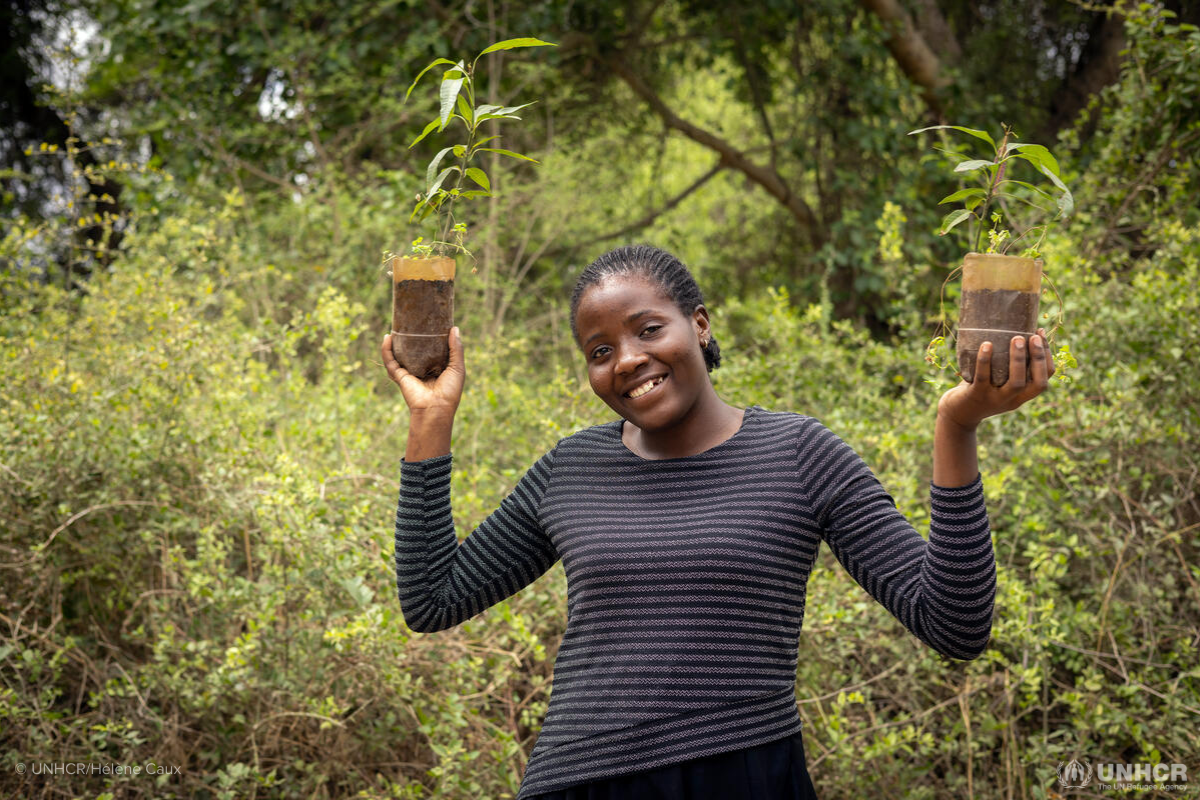
Twenty-one-year-old Jeanne is a Rwandan refugee and climate and environment activist. She arrived at the Tongogara refugee camp in Zimbabwe with her family in 2003, when she was only one. She quickly became a leader for children in the camp, aiming to improve their lives and raise awareness about climate and environmental issues.
Tongogara refugee camp is regularly exposed to natural disasters such as floods, cyclones and heat waves. The nearby Sabi River frequently floods, forcing refugees to move away from their shelters until the waters return to normal levels.
“The way we are experiencing natural disasters and the effects of climate change in Tongogara, through flooding, heavy rains, strong winds, even cyclones, and heat waves, this made me realize how people can be badly impacted by losing their livelihoods, their houses, and how their lives can change in a minute,” Jeanne explains. “So what I experienced and witnessed in the camp made me want to act towards climate change.”
Jeanne’s passion for the environment shines bright in the Tongogara refugee camp. As a youth leader, she spearheads initiatives like tree planting and climate awareness campaigns, empowering fellow refugees to protect their environment and build sustainable futures despite the camp's challenges.
How you can help…
By becoming a USA for UNHCR monthly donor, you can help ensure refugee youth are equipped with the resources they need to excel and leave a lasting impact on their communities.
